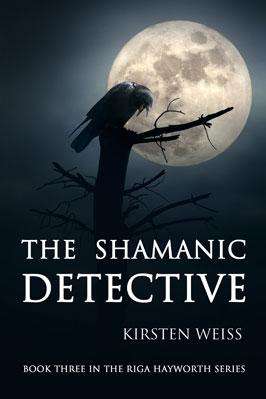Over at aeon, Jason Webster has written an essay suggesting that crime fiction filled a cultural void left by retreating religion:
Throughout history, priestly castes have boasted a unique capacity to answer the great riddles of existence, and it is surely more than a coincidence that, during the detective fiction boom of the 1860s, intellectual developments in Britain were profoundly undermining the Church’s traditional monopoly on such matters. In 1859, after two decades of delay, Charles Darwin published On the Origin of Species. The theory of evolution did not emerge from nowhere; even before Darwin’s ideas went public, many were already moving away from the literal interpretation of the Bible stories. But no single event played such an important part in the shift from a religious to a secular society, and no other book did so much to shake the authority of clerics and their official answers. This left a cultural vacuum, and in a changing world full of new dangers and problems, the fictional detective stepped into the breach.
While I doubt that anyone other than crime fiction cognoscenti would make such a connection and pursue a similar line of historical argument, it’s hard not to admire Webster’s creativity. My only quibble is that Webster conflates shamans with priests when he compares them to fictional detectives. In the subtitle to his story (which is titled “Unholy Mystery”), Webster alternates and confuses the two: “Shamanic powers of insight and the power to bring order out of chaos. Is the detective a priestly figure for our times?”
While there are certainly similarities between shamans and priests, anthropologists usually distinguish between the two. Shamans are associated with hunter-gatherers and other non-institutional societies, whereas priests are associated with agriculturalists and institutional societies. In her article “Signs of the Sacred: Identifying Shamans Using Archaeological Evidence,” Christine VanPool makes a good analytical case for the distinction. Of course some societies (such as the Pueblos) are betwixt and between; in these, the distinctions are blurred.
With this in mind, Webster’s description of what fictional detectives do is not dissimilar from what shamans do:
If nothing else, the detective is a problem-solver; someone who can restore order where there is chaos. Faced with the worst crime (what could be more existentially troubling than a murder?), the detective gives us answers to the most pressing and urgent questions: not only whodunit, but how and why and what it means. He does all this by taking us on a journey, discovering pieces of evidence, seeking out hints and clues. In the best examples of this game, we see everything that the detective sees, yet we are unable to solve the crime ourselves. Only the detective, in a final display of mastery, can reach the correct conclusion. We need him, with his special knowledge and abilities, to make sense of it all.
This reminds me of Stanley Krippner’s contention that shamans were those who “made sense” of symbolic capacities during course of human evolution:
For the shaman, the totality of inner and outer reality was fundamentally an immense signal system, and shamanic states of consciousness were the first steps toward deciphering this signal system.
Epistemology is concerned with the nature, characteristics and processes of knowledge, and in this essay I am suggesting that shamanic epistemology drew upon perceptual, cognitive, affective and somatic ways of knowing that assisted early humans to find their way through an often unpredictable, sometimes hostile, series of environmental challenges. Not only did early humans have to become aware of potentially dangerous environmental objects and activities, they needed to have explanatory stories (enacted as mythic rituals) at their disposal to navigate through the contingencies of daily encounters and challenges. The acute perceptual abilities of shamans, in combination with their intuition and imagination, met their societies’ needs.
In psychological terms, shamans are socially designated practitioners who claim to self-regulate their psychological functions to obtain information unavailable to other members of their social group. Shamans were probably humanity’s original specialists, combining the roles of healers, storytellers, weather forecasters, performing artists, ritualists, and magicians.
To this list, we can now add detectives or Sherlock the Shaman.
 Note: Those interested in the VanPool and Krippner articles should consult the educational Resource tab above.
Note: Those interested in the VanPool and Krippner articles should consult the educational Resource tab above.

